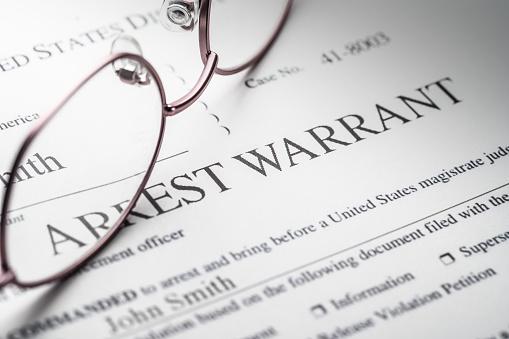If you commit a crime and are immediately arrested without the involvement of a court for a warrant, you will be immediately taken to jail and likely be held until your arraignment. However, the process may look a little different if the police are required to have an arrest warrant issued to find the suspect. This article explains the criminal process in Michigan.
Immediate Arrest
If you are arrested without an arrest warrant, it is likely that the police only need a reasonable suspicion to make the arrest and place you in jail until your arraignment.
Arrest Warrant

If a crime is committed and a witness identifies an individual as the perpetrator, the police will have to go to a judge to obtain an arrest warrant. The police must prove probable cause that the suspect committed the crime to obtain an arrest warrant. If they are able to provide probable cause, an arrest warrant will be issued within the state and nationally. Even if you are in another state, you can be arrested for the crime committed in Michigan.
The arrest warrant allows the police to enter a location they reasonably believe the suspect is located to make an arrest or arrest them during a traffic stop. This means that if you visit a friend and someone tells the police that you are at the friend’s house, the police may go into the house even without permission to make an arrest. However, the arrest warrant does not provide police the ability to search your property. They are only allowed to collect evidence that is in plain sight. If the police enter your home to make an arrest and begin going through closed drawers looking for evidence, they have performed an illegal search of your property. Anything they find during the illegal search can be challenged in court.
Reasonable Suspicion
Reasonable suspicion is the lowest burden of proof. It merely requires officers to have a reasonably justified suspicion that a person has recently committed a crime, is in the process of a crime, or is about to commit a crime. However, there must be more than just a hunch that the person is going to commit a crime. The purpose of reasonable suspicion is to allow officers to enforce the law, prevent crime, and keep them safe during interactions; however, it cannot be taken advantage of to unnecessarily detain people. Officers with reasonable suspicion may temporarily detain the person and do a pat-down.
Probable Cause
Probable cause is the burden of proof required to make an arrest, fully search a person, and obtain a warrant. Probable cause requires facts and evidence that would lead a reasonable person to believe the suspect had committed the crime.
Typically, to obtain a warrant, an officer will be required to provide an affidavit of probable cause. The affidavit is a sworn statement explaining the facts relating to the desired arrest. It can also be used to obtain a search warrant.
Beyond A Reasonable Doubt
Beyond a reasonable doubt is the highest burden of proof used in criminal cases. The burden requires the prosecution to prove that the defendant is guilty beyond all reasonable doubt, meaning if there is any doubt in the jurors’ minds, the defendant should not be convicted.
Arraignment
Once you have been arrested, the law requires that arraignment be held without unnecessary delay. It is likely that you will be held in jail until that arraignment. However, depending on the time of your arrest, this may be a couple of days. For example, if you are arrested on a Saturday afternoon, and the following Monday is a holiday, you could be sitting in jail until your arraignment on Tuesday. Once you appear at the arraignment, you should have had a chance to consult an attorney unless you waived that right and will have a chance to plead guilty, not guilty, or no contest.
A plea of no contest means that the defendant accepts the charge but does not admit their guilt. This means the defendant will be treated as though they entered a guilty plea but did not actually admit guilt. Generally, a plea of no contest is used as a part of a plea bargain and may be helpful if the defendant is also facing a civil lawsuit in relation to the criminal charges.
Michigan Criminal Defense Attorney
If you or someone you know has been arrested, it is recommended that you immediately contact an experienced criminal defense attorney. The attorneys at George Law will get to work immediately on your case collecting evidence, negotiating a plea bargain if you desire, and preparing your defense. To schedule a free, confidential consultation with an experienced attorney at George Law, contact us at (248) 470-4300 or online.

 Menu
Menu